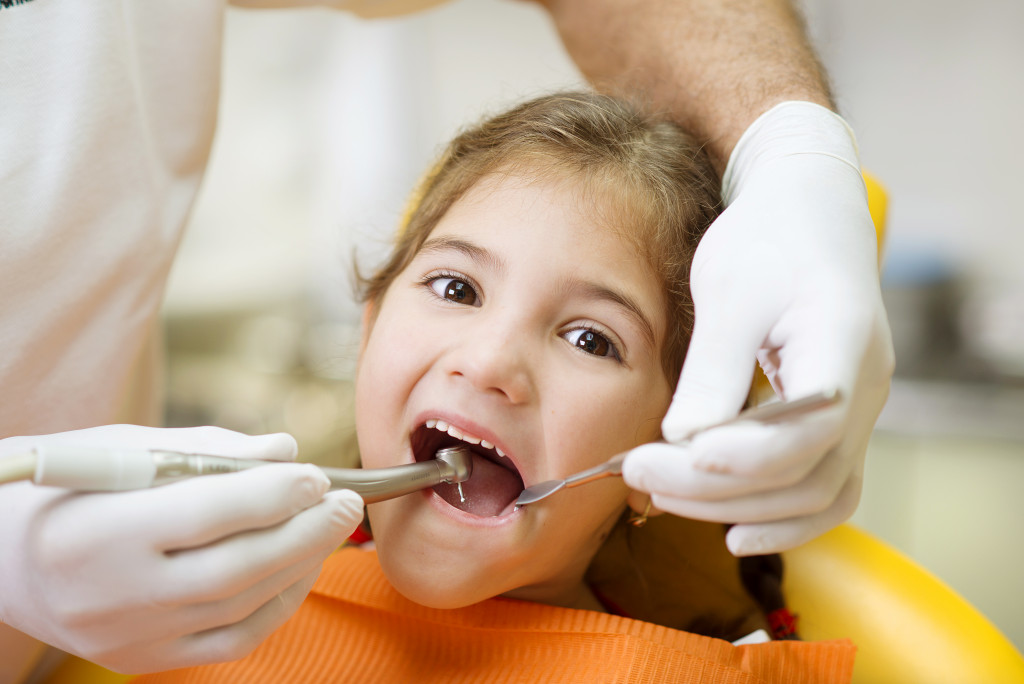The mouth is the entryway of our food and drinks and other unwanted matter like bacteria and viruses that can cause diseases. Oral health is linked to our overall health as it can be the site where symptoms of some diseases appear and can be directly affected when something goes wrong in our body.
This is why oral health is crucial in keeping us healthy. But children, who can care less about their well-being, will not think much of their own oral health, so it is up to the adults to show them its importance. It is the responsibility of the parents to teach their kids how to take care of their mouths.
No matter how difficult it can be, oral health must be taken care of, or it will cause major problems later on. But to help parents in this task, here are some points to consider for your children’s wellness.
Proper Hygiene
A big part of taking care of your child’s oral health is proper oral hygiene. Hygienic practices help to prevent most kinds of problems that arise from unsanitary habits.
Teaching them the proper way to do it and imbibing its importance should keep them healthy even until they become working adults, maybe even preventing expensive procedures like getting dental implants, root canals, and tooth extraction. For kids, dental hygiene is almost the same as that for adults but is generally a gentler process that considers their not-as-strong teeth.
Teach them how to properly brush their teeth. Using a soft-bristled toothbrush and the appropriate amount of toothpaste, make back and forth motions on every surface of every tooth. This should include the farthest molars and the inner sides of the teeth.
Gently brush other surfaces like the gums, walls, and cheeks of the mouth and tongue. Spit the suds but do not gargle to rinse afterward to keep the toothpaste’s fluoride on the teeth. Practice brushing at least twice every day.
Flossing every day will also have to be taught early to clean the in-betweens of their teeth that simple brushing cannot reach. You will have to do it for them initially, but with enough practice, they will eventually learn how to floss gently without bleeding.
Proper Diet
As mentioned, the things that enter the mouth can affect our oral health. Some foods and drinks are good for us while others can cause problems. Sugary treats power the bacteria that can eat away at the enamel of our teeth. This, in turn, can cause cavities, so brush the teeth immediately after sugar intake. Similarly, starchy foods can easily be trapped between our teeth and might be harder to remove by brushing.
Thankfully, most healthy foods are good for the teeth. Fruits, vegetables, and dairy products help strengthen our teeth, making them more durable as children grow older. Some recommend chewing gum (for older kids), giving benefits like strengthened jaws, increased saliva production, and fresher breath.
Dental Appointments

Some parents will wonder how early they should bring their children to the dentist. Generally, a year after their first tooth shows can be a good time. But many children will show fear of going to the dentist during the first few appointments. They can be confused about why someone is tampering with their mouth using cold metal equipment. The usual dental clinic setting with bright white lights and sterile smells can also be scary in their minds.
To help with this, it is important to bring them in as young as possible to condition a better response while on the dentist’s chair. You can even start with a pediatric dentist who is better equipped to handle younger kids. Like adults, children should see the dentist at least every six months, but more frequent visits of at least every three months can help them be more comfortable and less scared of the environment.
These tips are only some things you should remember to keep your children’s oral health in order. As they grow older, you will also see other changes like the transition of milk teeth to permanent teeth, discoloration of the teeth, or misaligned teeth.
All of these can be addressed by your dentist specific to the case of your child. But the bottom line is to teach them the importance of maintaining good hygiene, a balanced diet, and consulting with a dental professional to avoid complications in the long run. Just be patient while teaching these young ones to prepare them for anything that life throws at them.
